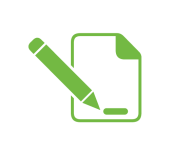Assessing Early Childhood Teachers' Use of Child Progress Monitoring to Individualize Teaching Practices
Pre-testing of Evaluation Surveys
Attachment D EDIT pretest letter_clean
Assessing Early Childhood Teachers' Use of Child Progress Monitoring to Individualize Teaching Practices
OMB: 0970-0355
ATTACHMENT
D
EDIT PRETEST LETTER (Clean)
[NAME]
|
P.O. Box 2393 Princeton, NJ 08543-2393 Telephone (609) 799-3535 Fax (609) 799-0005 www.mathematica-mpr.com |
Your classroom has been selected to be part of an important project called the Examining Data Informing Teaching (EDIT) project. Your participation will help the U.S. Department of Health and Human Services, Administration for Children and Families better understand ways in which teachers collect information about the children in their classrooms and how teachers use that information to help children learn.
We look forward to visiting your center and meeting with you on [VISIT DATE]. To help you get your materials collected and organized for our visit, we ask that you prepare as follows:
F |
On this brief call, we will:
|
Next
|
Select 1 child performing well and 1 child who has some challenges in language or literacy. Please use the following list to select from among children who have permission to participate. CONSIDER SELECTING: [INSERT INITIALS OF CONSENTED CHILDREN] DO NOT CONSIDER: [INSERT INITIALS OF NON-CONSENTED CHILDREN] |
Week of [DATE]
*Please
only include children who have permission to participate in
recordings. |
Four separate videos Child doing well (in a small group or individually):
Child with challenges (in a small group (or individually):
|
Week of [DATE]
*Please
only include children who have permission to participate in
recordings. |
Two separate videos: Child doing well:
Child with challenges:
|
Between Today and [DATE] |
From the previous two months, all the things that you collect and use to help decide how to support the learning of the 2 focal children including any observations, assessments, and plans for instruction. Examples of what some teachers use:
|
Please note:
We
are not observing your classroom in
person during
our visit, so the focal children you selected do not have to be
present in school on the day of our visit.
|
On [DATE], 2 researchers will visit your center to:
|
Enclosed in this package, you will find an iPad mini and a tripod with instructions for recording videos with the focal children. The researchers will collect the iPad mini from you when they arrive for the one day site visit.
Please note that if your program allows, we will provide you with a $75 gift card and your center with a $50 gift card for purchasing materials for the center in appreciation for your participation in this important study.
In addition, these tips and notes may be helpful as you prepare for our visit:
Preparation |
Tip |
Note |

Select 2 Focal Children
|
Think about the children in your class and select one child performing well in language and literacy and another child who is struggling in language, literacy, or social skills. |
Please do not select children who do not have permission to participate. CONSIDER SELECTING: [INSERT INITIALS OF CONSENTED CHILDREN] DO NOT CONSIDER: [INSERT INITIALS OF NON-CONSENTED CHILDREN] |
Videos
with Focal Children
|
Create a designated recording space with limited background noise, and position the iPad so that only you and the consented child(ren) are visible in the video. |
Do not include other non-consented adults or non-consented children – even in the background – in your videos. |
|
For each of the videos, please focus on language or literacy learning or social skills, but otherwise follow your typical classroom practice. |
|
|
Only collect information in the ways that you typically do in your classroom. |
|
|
Confirm that your videos saved to the iPad after each recording session. |
|
Gather
Documents
|
Gather the information that you collected about the 2 focal children from the 2 months prior to our visit and also any plans for instruction from those 2 months. |
We understand that paperwork varies by classroom, and we don’t want to add to your paperwork, so please only share documentation that you already have on-hand. |
|
|
We will return all documentation at the end of our visit; names will be hidden in any copies/photographs made of the documentation. |
If you have any questions, please contact me by email at [PROJECT DIRECTOR EMAIL] or by phone at [PROJECT DIRECTOR PHONE]. Thank you in advance for your time and consideration.
This
collection of information is voluntary. Public reporting burden for
this collection of information is estimated to average 205 minutes
per teacher, including the time for reviewing instructions,
gathering and maintaining the data needed, and reviewing the
collection of information. An agency may not conduct or sponsor, and
a person is not required to respond to, a collection of information
unless it displays a currently valid OMB control number. The OMB
control number for this collection is 0970-0355 and it expires
03/31/2018.
| File Type | application/vnd.openxmlformats-officedocument.wordprocessingml.document |
| Author | SFlowers |
| File Modified | 0000-00-00 |
| File Created | 2021-01-24 |
© 2026 OMB.report | Privacy Policy










